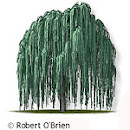 Russell Hoban
Russell Hoban1980
Awards: John W. Campbell Memorial
Nominations: Nebula
Rating: ★ ★ ★ ★ –
When I set myself the project of reading all the Nebula and Hugo award-winning novels, I told myself I would get through all the winners before reviewing those that were “just” nominees.
But, frankly, I have enjoyed some of the nominees I read in the past far more than I have enjoyed some of the winners. And when this book came across my transom, I could not resist breaking my own rules for it. I’m so very glad I did.
This book is set in England thousands of years after a 20th-century nuclear war destroyed most life on earth. Almost all literacy and technical knowledge was lost with the war, and humanity—what’s left of it—has reverted to Iron-Age-level hunting and gathering and some agriculture. The history-turned-mythology of the war is passed on through a sort of confused puppet show put on by traveling actors.
In general, the populace has a natural hostility towards education and what they call the “clevverness,” or scientific knowledge, which led to the war in the first place. But there are nevertheless people here and there who are surreptitiously working to regain that lost knowledge.
The narrator of the book, Riddley Walker, is a somewhat slow but sympathetic character who isn’t actively pursuing knowledge, but whose natural curiosity makes him want to make sense of the myths he’s being fed. This is one of the reasons he is our narrator—he is one of the few who had the desire to learn how to read and write. At the age of twelve, Riddley sees his father killed on a foraging job and has to take over his father’s role of “connexion man,” a sort of seer or interpreter of events. This special status separates him subtly from his peers and further encourages him to analyze and question what he sees around him.
Eventually, through a series of misadventures partially brought on by his inquisitiveness, Riddley discovers key pieces of information and material that could help to restore bomb-making knowledge and he has to go on the lam to escape from those who would kill him for it and/or use it for their own nefarious purposes.
The most striking thing about this book is not the story, however, but how it is written. The book is written by Riddley in his own native post-apocalyptic language, which is a semi-literate jumble of phonetic spelling, altered grammar, and long words broken down into shorter one- or two-syllable words. Some examples of the language used by Riddley and his peers:
"Down it come that girt big thing it made a jynt splosh and black muck going up slow and hy in to the air. That girt old black machine fel back in to the muck with my dad unner neath of it."
"'If you cud jus suck your thumb qwyet for a wyl and stop giving me inner fearents I cud tune in better.'"
"'To have them boats in the air which they callit them space craf and them picters on the wind which that wer viddyo and going out beyont the sarvering gallack seas.'"
It is pretty darned hard to read, especially at first. When I try to imagine why this book didn’t win the Nebula in 1981, all I can think is that the voters that year didn’t have the patience to make it through the first twenty pages or so to get used to Riddley’s speech, so they gave up and gave the award to a lesser book that was easier to read (Gene Wolfe’s Claw of the Conciliator). Fortunately, the John W. Campbell Memorial Award committee had a little more perseverance.
Hoban said that he wanted to write the book this way to slow the reader down to Riddley’s level of comprehension. And it does give you time to think about what is going on at the same pace Riddley does; it brings you into his mindset—and his world—in a way you wouldn’t necessarily get if he used contemporary English.
I found myself, naturally, comparing this book to other pieces of post-apocalyptic literature. It reminded me a tiny bit of The Road, in its desolation and occasional cannibalism, but (unlike The Road) it wasn’t so nightmarish as to be unreadable.
No, happily, the book it reminded me of the most was the great Canticle for Leibowitz. Like Leibowitz, it takes place on Earth after a devastating nuclear war has set society back several thousand years. As in Leibowitz, the story of the war and resulting devastation had been turned into barely-remembered, largely misinterpreted, and often pretty funny legend and myth. And both books suggest that humanity has a scary homing instinct; that even after such an awful war, the survivors will eventually try to regain the scientific knowledge that caused the war in the first place. You get the gnawing feeling that we will keep destroying ourselves over and over in a dreadful cycle.
Post Script: I didn’t realize until after I had read Riddley that I had already read one of Hoban’s other books long ago: The Mouse and His Child. That book was pretty dark and disturbing, too, especially for a children’s story, and I loved it.




